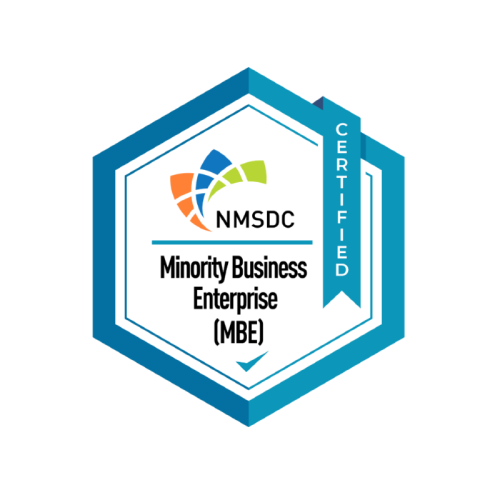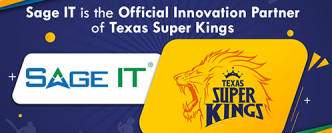A good CRM helps businesses track leads, close deals, and keep customers happy. Microsoft Dynamics 365 and Salesforce are two of the biggest names in the game, but which one fits your business better?
Both platforms offer AI-powered automation, deep analytics, and strong integrations, but they take different approaches. Salesforce is known for its cloud-first CRM with a massive app marketplace and powerful AI insights. Microsoft Dynamics 365 is built for businesses already using Microsoft tools, bringing everything together with Office 365, Teams, and LinkedIn.
We’ll compare pricing, automation, AI capabilities, integrations, and use cases to help you pick the CRM that matches your needs. Whether you want a highly customizable CRM with broad industry support or a system that fits right into your existing Microsoft setup, we’ve got the details you need.
Microsoft Dynamics 365 vs. Salesforce: Quick Comparison Table
| Feature | Microsoft Dynamics 365 | Salesforce |
| Pricing | Dynamics 365 Sales: Professional – $65/user/month, Enterprise – $95/user/month Dynamics 365 Customer Service: Professional – $50/user/month, Enterprise – $105/user/month | Salesforce Starter Suite: $25/user/month Sales Professional Edition: $75/user/month Service Professional Edition: $75/user/month Enterprise Edition: $150/user/month |
| Free Trial/Plan | 30-day free trial available for Sales, Customer Service, and Field Service applications | 30-day free trial available for Starter Suite, Sales Professional, and Service Professional |
| Centralized Database | Unified Customer Data Platform integrating sales, marketing, and service data | Customer 360 Data Model consolidating customer touchpoints |
| Sales Tracking | Advanced Sales Forecasting & Opportunity Management with predictive insights | Pipeline & Deal Management offering real-time tracking and forecasting |
| Automation | Workflow Automation across sales, service, and marketing to improve efficiency | AI-driven Workflows & Recommendations powered by Einstein AI |
| Customer Segmentation | AI-driven Audience Targeting & Lead Scoring for personalized engagement | Automated Segmentation & Engagement Tracking with Data Cloud insights |
| AI Capabilities | Copilot AI for predictive insights, sales intelligence, and next-best-action recommendations | Einstein AI for predictive analytics, lead scoring, and customer insights |
| Reporting & Analytics | Comprehensive Dashboards with Power BI integration for advanced insights | Reports & Dashboards providing real-time sales and marketing metrics |
| Marketing Automation | AI-powered personalization, multi-channel campaign automation, and lead scoring | Pardot & Marketing Cloud offering automation, customer engagement, and B2B/B2C marketing tools |
| Omnichannel Communication | Integrated chat, email, social, and voice solutions for seamless customer interaction | Multi-channel engagement via email, phone, social media, WhatsApp, and live chat |
| Customer Service & Support | AI-driven case management, self-service portals, and intelligent routing | AI-powered case routing, automated service workflows, and chatbots |
| Field Service Management | IoT-driven work order management, real-time scheduling, and technician tracking | AI-powered dispatching, asset tracking, and predictive maintenance |
| Third-Party Integrations | 700+ apps via Microsoft AppSource, deep integration with Office 365, Azure, and LinkedIn | 2,600+ apps via Salesforce AppExchange with extensive API capabilities |
| Best For | Businesses using Microsoft products & needing deep AI-driven analytics | Companies prioritizing cloud-native CRM with extensive third-party integrations |
| Ideal Company Size | Midsize to Large Enterprises | Small to Large Enterprises |
Who Is Microsoft Dynamics 365 For?
Microsoft Dynamics 365 is built for businesses looking to connect their sales, marketing, and service teams through a unified, AI-powered platform. Whether you’re a midsize company scaling operations or a large enterprise managing complex customer relationships, Dynamics 365 brings together advanced automation, predictive insights, and deep integration with the Microsoft ecosystem to help teams work smarter.
For organizations already using Microsoft 365, Teams, or Azure, Dynamics 365 is a natural fit. It eliminates data silos by unifying customer interactions, sales pipelines, and support cases in a single system, making it easier for teams to collaborate and make data-driven decisions.
Sales teams will appreciate AI-driven forecasting, opportunity tracking, and Copilot AI for real-time insights, helping them close deals faster. Marketers can segment audiences, automate campaigns, and personalize outreach based on customer behavior. Meanwhile, customer service teams can provide consistent, omnichannel support across chat, email, and voice, with AI-powered case routing to speed up response times.
With robust security, compliance capabilities, and industry-specific solutions, Dynamics 365 is an perfect choice for businesses handling complex customer data, multi-channel interactions, or enterprise-wide sales operations. If your company values tight integration with Microsoft products, AI-powered decision-making, and a scalable platform, Dynamics 365 is built for you.
Who Is Salesforce For?
Want to see how it fits your business? Explore the features and integrations of Dynamics 365 today.
Salesforce is built for businesses that need a scalable, cloud-first CRM that grows with them. Whether you’re a fast-growing startup or a large enterprise, Salesforce gives you real-time sales tracking, AI-driven automation, and deep industry-specific solutions to manage customer relationships at scale.
Sales teams see their entire pipeline in one place, with tools to track deals, automate tasks, and close more sales without losing momentum. Marketing teams can launch personalized campaigns with AI-driven insights, and customer service teams get tools like AI-powered case routing to speed up response times.
If flexibility is a priority, Salesforce delivers. With over 2,600 integrations through AppExchange, it connects with the tools you already use—whether that’s Slack, QuickBooks, or industry-specific software.
Salesforce is a good fit for businesses of all sizes, but it shines for growing companies that need customization, automation, and AI-driven insights to scale their customer operations.
Microsoft Dynamics 365 vs Salesforce – Feature Comparison
Microsoft Dynamics 365 Pricing Plans
Business Central Essentials
- Price: $70 per user/month
- Features:
- Finance management
- Sales and marketing
- Supply chain management
- Project management
- Ideal For: Small to midsize businesses need an all-in-one business management system.
Business Central Premium
- Price: $100 per user/month
- Features:
- All Essentials features
- Service management
- Manufacturing capabilities
- Ideal For: Businesses requiring advanced service and manufacturing functionalities.
Sales Professional
- Price: $65 per user/month
- Features:
- Core sales force automation
- Microsoft 365 integration
- Reporting and dashboards
- Ideal For: Sales teams aiming to enhance efficiency and close deals faster.
Sales Enterprise
- Price: $105 per user/month
- Features:
- Advanced sales force automation
- AI-driven insights
- Customization options
- Ideal For: Organizations seeking deeper sales insights and extensive customization.
Note: Prices are subject to change. For the most current information, please visit the Microsoft Dynamics 365 Pricing page.
Salesforce Pricing Plans
Starter Suite
- Price: $25 per user/month
- Features:
- Sales, service, and marketing tools
- Email outreach capabilities
- Unified CRM platform
- Ideal For: Small businesses looking to unify their customer management processes.
Sales Cloud Professional
- Price: $75 per user/month
- Features:
- Lead, opportunity, and pipeline management
- Workflow automation
- Custom reports and dashboards
- Ideal For: Growing sales teams that need better tracking and automation.
Sales Cloud Enterprise
- Price: $150 per user/month
- Features:
- Advanced sales forecasting
- AI-driven insights (Einstein AI)
- Extensive customization and integrations
- Ideal For: Businesses needing advanced sales processes, AI-driven insights, and scalability.
Service Cloud Professional
- Price: $75 per user/month
- Features:
- Case management and automation
- Self-service portals
- Integration with chat, email, and voice
- Ideal For: Customer service teams looking to manage cases efficiently and improve resolution times.
Service Cloud Enterprise
- Price: $150 per user/month
- Features:
- AI-powered case routing (Einstein AI)
- Advanced analytics and automation
- Multi-channel support with enhanced customer engagement
- Ideal For: Enterprises looking for AI-driven service optimization.
Marketing Cloud Account Engagement
- Price: Starting at $1,250/month (billed annually)
- Features:
- Advanced email marketing automation
- AI-driven customer insights and segmentation
- Multi-channel campaign management
- Ideal For: Businesses focused on scaling their marketing efforts with automation and AI.
Unlimited Edition (For Sales & Service)
- Price: $300 per user/month
- Features:
- Unlimited customization and integrations
- Advanced AI analytics
- Dedicated 24/7 support
- Ideal For: Large enterprises that need deep customizability, full automation, and AI-powered insights.
Note: Prices may vary based on business needs and additional add-ons. For the most updated pricing, visit the Salesforce Pricing Page.
Centralized Database:
Microsoft Dynamics 365
Real-Time Data Synchronization
Microsoft Dynamics 365 consolidates customer data from sales, marketing, and service teams into a unified platform. Microsoft Dataverse eliminates duplicate records and reduces manual data entry by syncing information across applications. Power BI integration provides businesses with real-time dashboards that track customer behavior and campaign performance, helping teams make informed decisions without delays.
Deep Microsoft Ecosystem Integration
Microsoft Dynamics 365 integrates natively with Microsoft 365 (Outlook, Teams, SharePoint), keeping all communication and historical interactions within a single ecosystem. The built-in connection with LinkedIn Sales Navigator allows businesses to track prospect interactions and build stronger relationships. This integration streamlines operations by reducing the need to switch between multiple platforms while equipping sales teams with real-time engagement insights to close deals faster.
Salesforce
AI-Powered Customer Data Unification
Salesforce’s Customer 360 Data Model brings together customer information from sales, service, and marketing in one place. Salesforce Data Cloud aggregates CRM data with external sources such as social media, e-commerce, and customer support, providing a comprehensive customer profile. Einstein AI detects duplicate records and merges fragmented data, ensuring that teams have a clear and up-to-date view of customer interactions without data inconsistencies.
Third-Party Data Enrichment & Integrations
Salesforce works with over 2,600 third-party apps through AppExchange, giving businesses access to insights from web analytics, customer purchases, and ERP systems. With this data, teams can spot buying trends, fine-tune marketing efforts, and engage customers more effectively. The ability to sync Salesforce with e-commerce and other business tools helps companies stay informed about customer activity and make smarter decisions at every stage of the sales and marketing process.
Sales Tracking
Microsoft Dynamics 365
Sales Pipeline Visibility
Tracking deals in real time is crucial for keeping sales teams on target. Microsoft Dynamics 365 provides a clear, structured view of the entire sales pipeline, helping businesses monitor deal progression, track sales stages, and forecast revenue trends.
With customizable dashboards and AI-driven insights, sales managers can find which deals are most likely to close and allocate resources accordingly.
Predictive Sales Forecasting
We like how Copilot AI in Dynamics 365 uses predictive analytics to score leads, assess deal health, and highlight the most promising opportunities.
Sales teams can use these insights to focus on high-value prospects, minimize lost deals, and optimize revenue potential.
Activity & Task Management
Keeping track of calls, emails, and meetings can be overwhelming. Dynamics 365 automates activity logging and follow-ups, ensuring sales reps stay on top of engagements without manual data entry.
We appreciate the built-in sales accelerator, which prioritizes outreach efforts based on engagement patterns and AI-generated recommendations.
Performance Monitoring & Reporting
Sales managers need real-time performance insights to track individual and team success. Dynamics 365 integrates with Power BI, allowing businesses to build custom reports, track sales performance, and measure conversion rates.
The ability to visualize sales data in one place makes it easier to refine strategies and improve sales outcomes.
Salesforce
Advanced Pipeline Management
Salesforce provides a dynamic pipeline tracking system that updates deal stages in real time and offers a visual overview of ongoing sales opportunities.
The platform’s Kanban-style interface makes it easy to drag and drop deals between stages, helping sales reps prioritize high-value opportunities.
AI-Powered Forecasting & Deal Insights
Einstein AI in Salesforce goes beyond basic forecasting by analyzing past trends, identifying risks, and predicting revenue outcomes.
We were impressed with how Einstein Forecasting provides data-backed sales projections that help businesses make confident, strategic decisions.
Sales Rep Productivity & Automation
Salesforce automated follow-ups, lead assignments, and outreach scheduling, which increases the sales team productivity.
The platform’s Activity Timeline offers a single view of all interactions, making it easy to track emails, calls, and meetings without switching between tools.
Customizable Sales Reports
Salesforce offers drag-and-drop reporting features, letting sales teams build custom dashboards that track key performance metrics.
We liked the AI-powered insights in Reports & Dashboards, which help managers identify trends and improve win rates across teams.
Marketing Automation
Microsoft Dynamics 365
1. AI-Powered Customer Journeys
Your team can set up automated campaigns that react instantly to customer actions. If someone downloads a whitepaper, Dynamics 365 can trigger a personalized follow-up email or a reminder for your sales team to connect—all without manual effort.
2. Smarter Audience Targeting
Instead of guessing which customers are ready to buy, Dynamics 365 uses AI to analyze engagement trends and suggest high-potential leads. This helps marketing teams prioritize efforts where they matter most.
3. Multi-Channel Campaigns in One Place
Your team can run email, SMS, and social media campaigns all from one dashboard. The drag-and-drop campaign builder makes it easy to design, launch, and track multiple campaigns without juggling different tools.
Salesforce
Salesforce Marketing Cloud is for teams that want a full-scale marketing system with AI-powered insights and deep cross-channel automation. If you’re looking for a highly scalable solution that works across email, social media, SMS, and ads, this platform delivers.
1. Einstein AI for Smarter Marketing
Salesforce’s Einstein AI analyzes customer behavior to predict the best time and channel to reach them. If a lead is more likely to engage via SMS than email, Einstein AI automatically adjusts your outreach strategy.
2. Automated Multi-Channel Journeys
With Salesforce Journey Builder, your team can design automated paths that guide prospects from awareness to purchase. Whether it’s an email, a chatbot interaction, or a retargeted ad, everything is connected in a single workflow.
3. Advanced Lead Nurturing & Scoring
Salesforce automatically scores leads based on how they interact with your brand. If a lead opens emails, visits pricing pages, and fills out forms, Salesforce can flag them as a priority for sales follow-up.
Customer Segmentation
Microsoft Dynamics 365
1. AI-Driven Segment Suggestions
Figuring out which customers to target shouldn’t feel like a guessing game. Microsoft Dynamics 365 makes it easier by automatically suggesting customer segments based on patterns in your data. If you’ve ever wondered which prospects are most likely to convert or which customers need re-engagement, the system helps you find the answers without manually sorting through lists.
2. Real-Time Segmentation
No one has time to constantly update customer lists, and with Dynamics 365, you don’t have to. As customer behaviors change—whether they interact with an email, complete a purchase, or submit a support request—the system automatically moves them into the right segments. That means your marketing campaigns always reach the right audience at the right time.
3. Behavioral and Transactional Grouping
Not all customers behave the same way, so Dynamics 365 helps businesses group them based on real engagement. Whether you want to target people who browse frequently but never buy, or those who engage on social media but not via email, you can fine-tune segments based on behaviors rather than broad demographics.
Salesforce
Build Highly Detailed Customer Profiles
Salesforce gives you full control over how you group your customers. Instead of relying on basic categories, you can segment people based on demographics, interests, past purchases, and even how they interact with your business online. If a customer frequently checks out certain products, they can be added to an interest-based segment automatically—so they only see marketing that actually matters to them.
Let Your Segments Update Themselves
No one likes outdated lists, and Salesforce ensures that doesn’t happen. If someone stops opening emails but starts engaging on social media, they’re automatically moved into a different audience segment. This means your campaigns stay relevant without requiring constant manual updates.
Target Customers Based on Engagement, Not Just Data
The way people interact with your brand matters just as much as their purchase history. Salesforce helps businesses create smart customer segments based on real engagement—whether that’s opening an email, watching a webinar, or visiting a specific page. That way, your messaging feels natural, not random.
AI-Powered Analytics
Microsoft Dynamics 365
1. Smarter Sales Predictions with Copilot AI
Tracking sales performance isn’t just about looking at past numbers. Copilot AI evaluates ongoing deal activity, customer engagement, and market trends to predict which opportunities are most likely to close. Instead of chasing leads blindly, sales teams get clear recommendations on where to focus their time.
2. Interactive Dashboards with Power BI
Data-heavy reports can be overwhelming. With Power BI, businesses get clear, visual insights instead of complex spreadsheets. Sales leaders can track win rates, pipeline health, and revenue forecasts—all in custom dashboards that update in real time.
3. Proactive Alerts for Changing Metrics
Waiting until the end of the quarter to check KPIs can mean missed opportunities. Dynamics 365 automatically flags dips in sales performance, customer churn risks, and engagement shifts—helping teams adjust strategy before problems arise.
4. Connected Data Across Sales, Marketing & Service
Siloed data slows decision-making. Dynamics 365 connects sales, marketing, and customer service insights so every team has the same real-time information. Marketers see which campaigns drive conversions, sales teams spot high-value opportunities, and service reps can respond faster to customer needs.
Salesforce
1. Smarter Forecasting with Einstein AI
Refining Sales Forecasts with Einstein AI
Sales forecasting often relies on static reports that become outdated quickly. Einstein AI adapts predictions in real time, taking into account deal momentum, customer interactions, and market conditions. If a high-value deal starts stalling, sales teams don’t have to wait until the next review cycle—Einstein flags the shift immediately, helping them decide whether to re-engage or focus on stronger opportunities.
2. Understanding Customer Behavior & Sentiment
Numbers only tell part of the story. Einstein AI analyzes customer interactions across email, social media, and website activity to track sentiment and engagement trends. If a lead is highly engaged but hasn’t converted, sales teams know when and how to follow up.
3. Spotting Trends Without Manual Reporting
Instead of spending hours analyzing sales reports, Einstein AI automatically highlights patterns, campaign performance, and retention risks. Teams see what’s working, what’s not, and what to do next—without digging through spreadsheets.
4. Custom Dashboards That Bring Everything Together
Salesforce’s reporting tools let businesses track marketing ROI, sales performance, and customer engagement in a single dashboard. Whether tracking ad performance or monitoring retention rates, teams have the data they need, when they need it.
Omnichannel Engagement
Microsoft Dynamics 365
Talk to Customers on Their Terms
Conversations don’t happen in just one place. With Microsoft Dynamics 365, teams can manage customer interactions across email, live chat, social media, and SMS—all from a single workspace. No need to jump between apps or track down old messages—everything is connected in real time.
Voice Calls Without Extra Tools
Forget juggling multiple systems just to make a call. Microsoft Dynamics 365 lets teams handle voice conversations inside the platform, whether through a direct phone line or a built-in call feature. Calls are automatically logged, and AI-powered transcripts help agents pick up where they left off.
Keep Social Conversations Flowing
Customers don’t always reach out via email—sometimes they message on Facebook or LINE instead. Dynamics 365 makes sure no message gets missed by pulling social conversations into the same inbox as emails and live chats. That way, support teams can stay on top of every request, no matter where it comes from.
Salesforce
Smarter Conversations with AI Routing
Salesforce helps teams manage high volumes of customer conversations without losing track. If a case is urgent, the system automatically assigns it to the right agent based on skills, workload, and availability. That means faster responses and fewer delays.
Work Across Multiple Apps Without Losing Sync
Businesses don’t just use one tool for customer engagement. Salesforce integrates with thousands of apps, from e-commerce platforms to service desks. Whether teams need to pull in purchase history or sync with marketing tools, they can do it without leaving Salesforce.
Let Customers Choose How They Connect
Every customer prefers a different way to reach out. Some like email, others prefer social media, and some just want to pick up the phone. Salesforce brings all those interactions together, so teams never have to ask, “Have you spoken to us before?”—they already know.
Microsoft Dynamics 365 vs Salesforce: Which One is Right for Your Business?
Choosing between Microsoft Dynamics 365 and Salesforce comes down to what works best for your team. If your business already relies on Microsoft tools like Outlook, Teams, and Azure, Dynamics 365 connects everything in one place—bringing AI-powered insights, predictive analytics, and deep integration across your workflow. With real-time data synchronization and Power BI dashboards, it’s a great fit for midsize to large enterprises that need a centralized CRM without leaving the Microsoft ecosystem.
Salesforce, on the other hand, is designed for businesses that need flexibility, extensive third-party integrations, and industry-specific solutions. With over 2,600 apps on AppExchange, it adapts to businesses of all sizes, helping sales and marketing teams automate customer interactions, refine audience segmentation, and track performance with Einstein AI-driven analytics. If your company thrives on a scalable, cloud-first CRM, Salesforce is a solid option.
Now that you have a clear idea of which CRM suits your business, it’s time to implement it. Instead of dealing with trial and error, work with experts who understand how to implement the right solution from day one. Are you seeking a Microsoft Dynamics 365 implementation partner or an experienced Salesforce consultant? Our certified experts manage the entire setup process and configure your CRM for long-term success. Get started—connect with us today!
With robust security, compliance capabilities, and industry-specific solutions, Dynamics 365 is an perfect choice for businesses handling complex customer data, multi-channel interactions, or enterprise-wide sales operations. If your company values tight integration with Microsoft products, AI-powered decision-making, and a scalable platform, Dynamics 365 is built for you.









